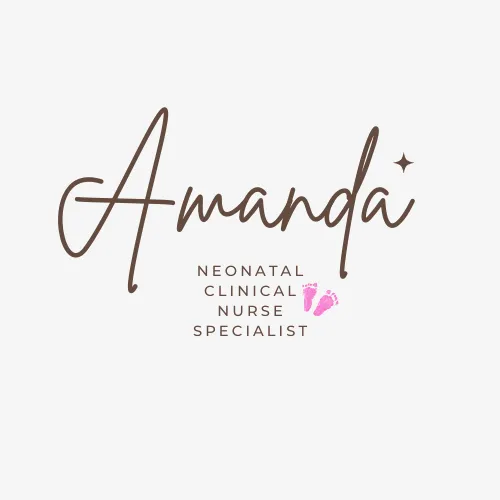
Welcome to Amanda's NICU Education




Hi! My name is Amanda. I'm a NICU nurse, Clinical Nurse Specialist, NICU Educator... basically your NICU BFF. If you want to talk NICU, I'm here for you! I love everything about NICU nursing and I'm eager to learn and share my knowledge with all my NICU friends.
I have been a NICU nurse since 2009 I am currently a Clinical Nurse Specialist in a Level IV NICU in Los Angeles.
I am passionate about educating the next generation of NICU nurses. I share my knowledge through platforms such as Instagram and Facebook and am excited to have you here on my website!
Click on the button below to sign up for my newsletter filled with NICU education and tips for all experience levels.

Not very many people love taking tests but as a self-acclaimed "forever student" who has taken (and passed) five different certification exams I am no longer afraid of tests! "Way to brag", you might be thinking but I want to help YOU pass your certification exam too!
Introducing Amanda's RNC-NIC Success digital course - your ultimate study companion!
Gain unlimited, on-demand access for life, ensuring you're primed to ace your certification exam.
I'm here to help you succeed and I can't wait for you to share with me that you PASSED the RNC-NIC EXAM!!!









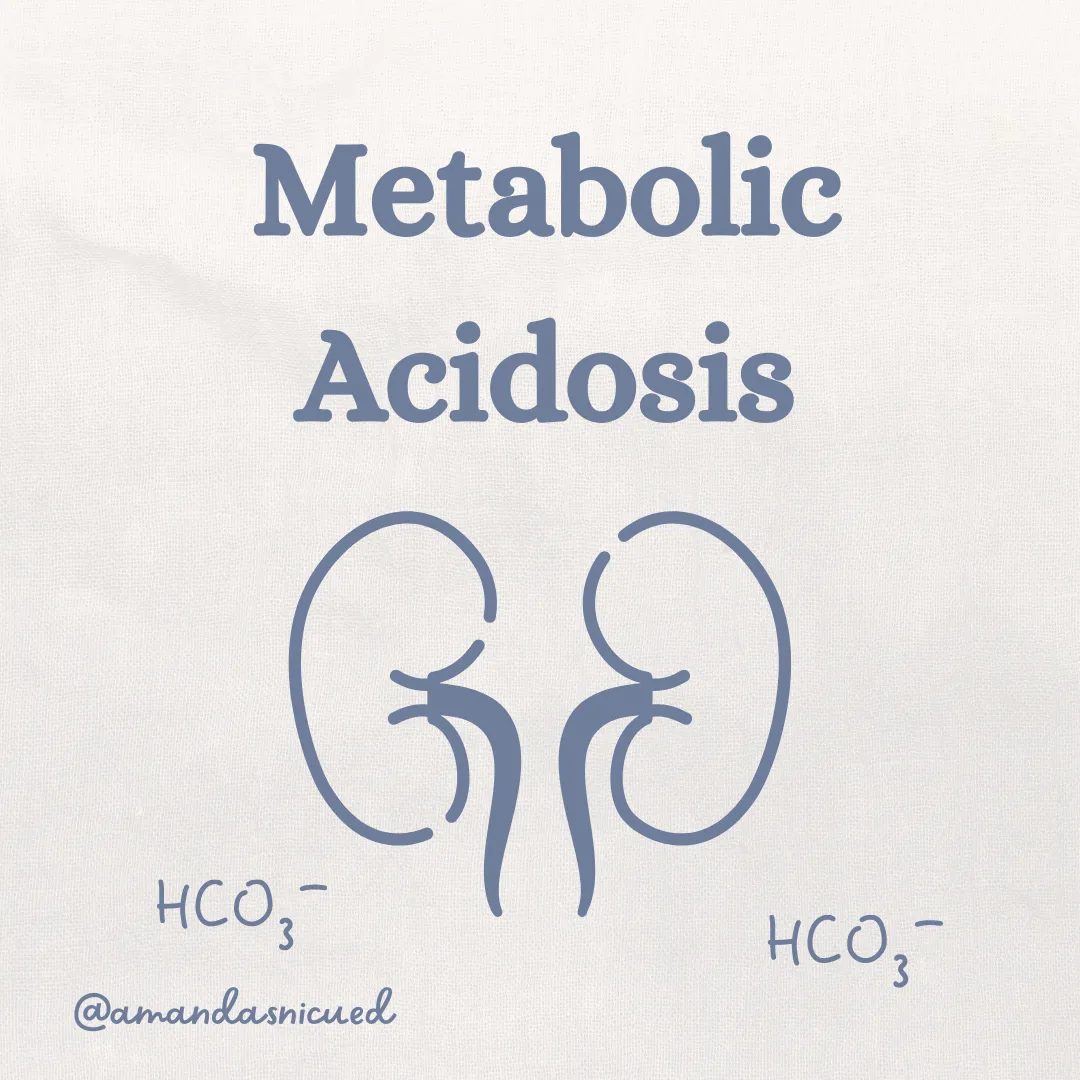
Interventions for Metabolic Acidosis
Blood Gas Interpretation & Interventions
Last week we reviewed the interventions we can anticipate when a baby has respiratory acidosis. This week let's review metabolic acidosis...

Need a Refresher on Blood Gas Interpretation? Click Here
Metabolic acidosis is a common problem we see in critically ill newborns due to an accumulation of acid (which lowers the pH) or a loss of base. Some situations that cause a build up acid include:
tissue hypoxia
hypothermia
hypovolemia
sepsis
NEC
bicarbonate loss from immature kidneys
and other severe illnesses
Metabolic acidosis can be divided into two categories: an elevated anion gap or a normal anion gap.
What's the anion gap??
The anion gap measures the difference between negatively charged (anions) and positively charged (cations) electrolytes in the blood. This helps identify the potential cause of metabolic acidosis. The anion gap is calculated by adding the chloride (Cl-) and bicarbonate (HCO3-) and subtracting that number from the sum of sodium (Na+) and potassium (K+).
Anion Gap = [(Na+) + (K+)] - [(Cl-) + (HCO3-)]
A normal anion gap in newborns is 8-16 mEq/L.
An anion gap >16mEq/L is highly predictive of lactic acidosis.
Metabolic acidosis with a normal anion gap most commonly occurs due to renal tubular acidosis and renal HCO3 loss.
I found this great video from Osmosis that explains the Anion Gap so well! Click the button below to check it out 🤓
What interventions can we anticipate if our patient has metabolic acidosis??
The most important intervention when there is metabolic acidosis is correction of the underlying cause (e.g. if concerned for sepsis treating with antibiotics; if there is hypoxemia improving oxygenation and ventilation; if hypovolemic giving volume).
Adding acetate to IV fluids in premature newborns with renal tubular acidosis is a common method to buffer the loss of base.
If there are signs of hypovolemia, a bolus (10mL/kg of NS) can be given. When a patient is not hypovolemic, volume replacement is poorly tolerated due to decreased myocardial contractility.
Sodium Bicarbonate (NaHCO3) is another method of providing base when severe metabolic acidosis is present, however there is controversy surrounding NaHCO3 and it has been quoted as "basically a useless therapy". If used, NaHCO3 must be used with caution as it increases the risk of intraventricular hemorrhage in preterm neonates. Additionally, those receiving NaHCO3 must be well ventilated as there is an increase in CO2 production after administration.

What topic do you want to review next? Email me and let me know what you have questions about! I love hearing from you 😊
Thank you for all the work you do,
Amanda xoxo
Missed my other newsletters? Click here to read them!
Let's Study Together! Join my Certification Course
References:
Curtis, S. (2025). Fluid, Electrolytes, and Acid-Base Homeostasis in Fanaroff and Martin's Neonatal Perinatal Medicine (12th Ed.) Elsevier
Wright, C., Posencheg, M. A., & Seri, I. (2024). Fluid, Electrolyte, and Acid-Base Balance in Avery's Diseases of the Newborn (11th Ed.) Elsevier
Aschner, J. L., & Poland, R. L. (2008). Sodium bicarbonate: basically useless therapy. Pediatrics, 122(4), 831–835. https://doi.org/10.1542/peds.2007-2400

December 2023 Certification Review Webinar
NICU Certification Review


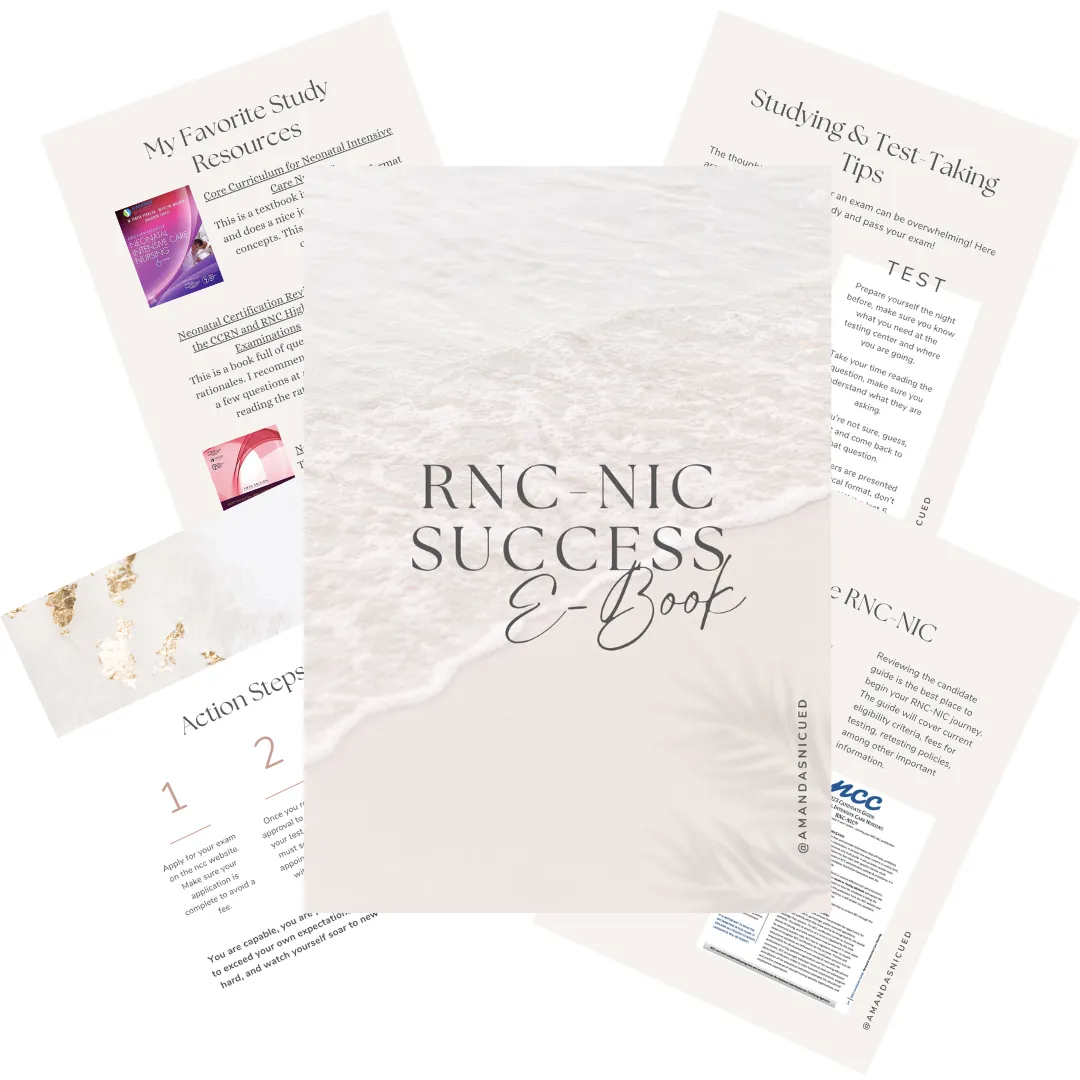
Ready to kickstart your journey to becoming a certified NICU nurse?
Look no further!
Grab my FREE E-Book packed with essential study and test-taking strategies for the RNC-NIC.
In the E-Book I give you the resources you need including the link to access the candidate guide, several types of books to study from, some of my favorite strategies, an outline of the content you should review, and a blank calendar for you to make your study plan!
Frequently Asked Questions About the RNC-NIC exam

What is the RNC-NIC?
The RNC-NIC is a competency-based exam that tests the specialty knowledge of nurses in the United States & Canada who care for critically ill newborns and their families.
The RNC-NICU is a nationally recognized certification that recognizes the registered nurse for their specialty knowledge and skill.
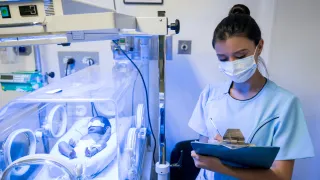
Who can take the RNC-NIC exam?
Nurses can take this exam after a minimum of two years experience in the NICU caring for critically ill newborns and their families.

Which books should I use?
I'm glad you asked! There are many excellent books to help you prepare for the RNC-NIC, I gathered ande describe each of them for you in my FREE e-book.
Is there a course to help me study?
Yes! Many hospitals host their own certification course and there are a few online courses. See my RNC-NIC test taking tips E Book for more information
What happens if I don't pass the exam?
If you don't pass the exam on your first try you can try again after 90 days. You will have to reapply after 90 days and pay a retest fee. There is no limit to the number of times you can take the exam (however a candidate can only sit for the exam twice per year).
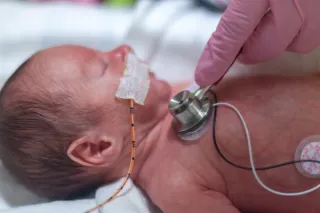
Can I make more money if I take the RNC-NIC exam and get certified?
Yes! Many hospitals provide a raise or a bonus for nurses with specialty certifications. Hospitals also typically hire at a higher base salary when nurses have a certification.

Find me @amandasnicued on these channels or Email me
hey nurses don't miss out
© Copyright 2024. AmandasNICUEd. All rights reserved. | Terms & Conditions | Privacy Policy Contact: [email protected]
